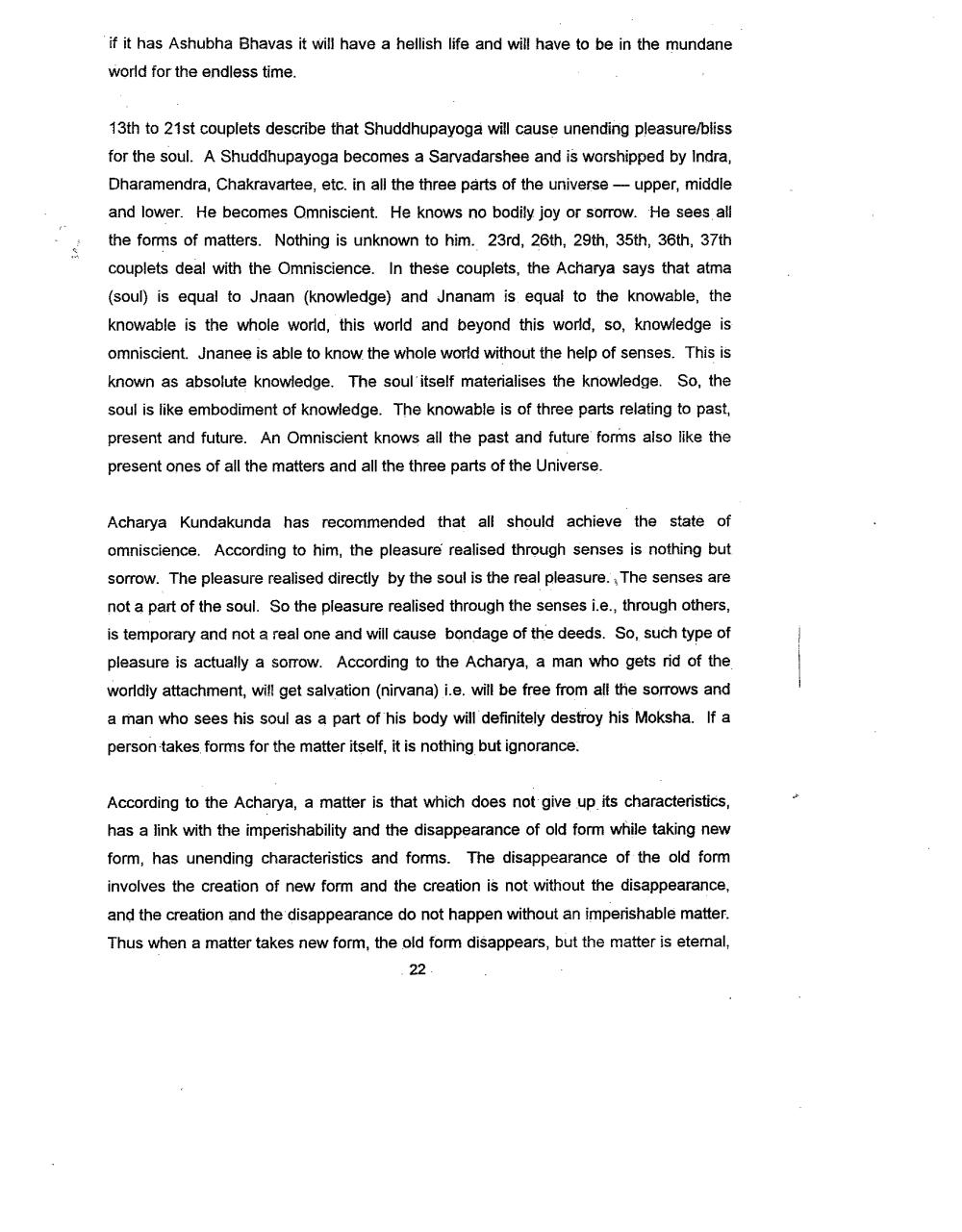________________
if it has Ashubha Bhavas it will have a hellish life and will have to be in the mundane world for the endless time.
13th to 21st couplets describe that Shuddhupayoga will cause unending pleasure/bliss for the soul. A Shuddhupayoga becomes a Sarvadarshee and is worshipped by Indra, Dharamendra, Chakravartee, etc. in all the three parts of the universe --- upper, middle and lower. He becomes Omniscient. He knows no bodily joy or sorrow. He sees all the forms of matters. Nothing is unknown to him. 23rd, 26th, 29th, 35th, 36th, 37th couplets deal with the Omniscience. In these couplets, the Acharya says that atma (soul) is equal to Jnaan (knowledge) and Jnanam is equal to the knowable, the knowable is the whole world, this world and beyond this world, so, knowledge is omniscient. Jnanee is able to know the whole world without the help of senses. This is known as absolute knowledge. The soul itself materialises the knowledge. So, the soul is like embodiment of knowledge. The knowable is of three parts relating to past, present and future. An Omniscient knows all the past and future forms also like the present ones of all the matters and all the three parts of the Universe.
Acharya Kundakunda has recommended that all should achieve the state of omniscience. According to him, the pleasure realised through senses is nothing but sorrow. The pleasure realised directly by the soul is the real pleasure. The senses are not a part of the soul. So the pleasure realised through the senses i.e., through others, is temporary and not a real one and will cause bondage of the deeds. So, such type of pleasure is actually a sorrow. According to the Acharya, a man who gets rid of the worldly attachment, will get salvation (nirvana) i.e. will be free from all the sorrows and a man who sees his soul as a part of his body will definitely destroy his Moksha. If a person takes forms for the matter itself, it is nothing but ignorance.
According to the Acharya, a matter is that which does not give up its characteristics, has a link with the imperishability and the disappearance of old form while taking new form, has unending characteristics and forms. The disappearance of the old form involves the creation of new form and the creation is not without the disappearance, and the creation and the disappearance do not happen without an imperishable matter. Thus when a matter takes new form, the old form disappears, but the matter is eternal,
22




